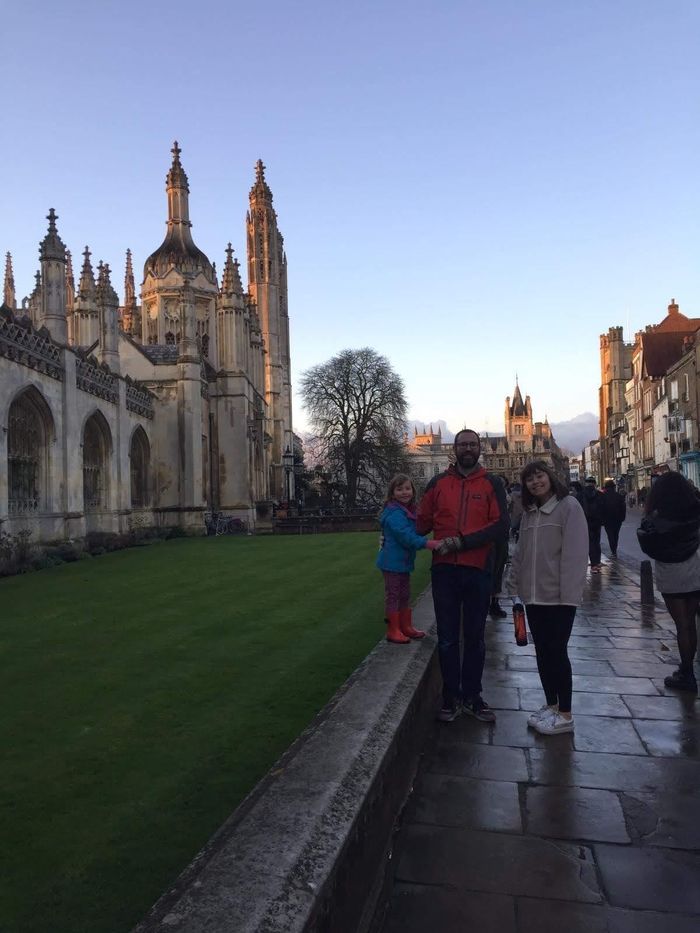To the one-year students of Cambridge
Owen Ayers writes a love letter to the 1-year students who, like him, only got to experience two terms of Cambridge

Where do I begin?
I do not know. Maybe this is because I did not foresee the end.
***
Love Letters to Cambridge
These are tough and uncertain times for us all, and a lot of us are left with little closure. Varsity are launching this series to give a platform to students reflecting on the parts of Cambridge they'll miss the most, and to gain some closure through writing. Just email our Features team with a 150-word pitch with your idea!
My decision to apply to Cambridge was a whim. As my undergraduate studies came to a close, something in me was unresolved. Simultaneously preparing for medical school while majoring in the humanities left me with an eclectic résumé and very little time to entertain extracurricular pursuits. I graduated without, in some ways, having really participated in important aspects of undergraduate life. Coming to Cambridge, then, was my last chance to be part of a collegiate community before entering adulthood, personally and professionally.
Like me, many of my friends were one-year MPhil students, and we quickly recognized this urgency in each other. Our fleeting months at Cambridge were a privilege; we wanted to capitalize on every moment. We committed ourselves with abandon to activities we had never tried before, joining choirs and sports teams and academic societies and all manner of student groups.
As we each found the people and activities that meant the most to us, Cambridge seemed ever more like a prism: marvelous and fragile. Our passage into this space had bent our paths, kaleidoscopically so. During my matriculation exercises at St John’s College, the clouds parted to reveal, almost too fittingly, a rainbow.

We now find that the prism has shattered before we were ready to pass through its far side. With this shattering comes the abrupt destruction of the rainbow, a literal disillusionment. Within mere days, sometimes hours, we fled, one by one, from the sacred adyta of our colleges to our respective homes. Goodbyes that were temporary became final; others could not be said at all. Each day conjures new realizations of things we will not experience: idle afternoons on the Backs; long walks through the meadows to Grantchester; the bacchanal that is May Week. Many of us plan on returning next June to do these things together, but we do so knowing that it won’t really be the same. Some of us will be absent, and new students will take their places. We cannot begrudge time its passing.
“Our spring will not consist of chance encounters in coffee shops or carefully planned excursions to Ely...”
One-year students endured an English winter for the glory of the spring and summer, but for the first time in my life, spring seems to loom rather than bloom. I look out my window now at the half-closed tulips in our garden and cannot help but think of the white tulips the grounds people planted in the window boxes of First Court last month. They must be fully open now, unwitnessed, their mild scent pooling in the fan vaults and cloisters overhead. How is it that we have nostalgia for things we never experienced? It is because what we feel is not nostalgia, of course, but grief. Nostalgia dwells on what has been; grief, on what will never be.
So, we mourn. There will be obvious lacunae in our social lives – there will be no garden parties or May Bumps or convocation. But there will also be many small, personal absences, and these will be the objects of our everyday grief. Our spring will not consist of chance encounters in coffee shops or carefully planned excursions to Ely, nor will the comforting routine of early-morning practice and late-night revision reign our days. We have been called, immediately and indefinitely, to perform these ablutions alone.

I cannot say how to move forward. In fact, some days, I am not sure how to move at all. Then again, my greatest joy at Cambridge was rowing with the Lady Margaret Boat Club, so the perspective I can offer is that of an oarsman. In a racing shell, the rowers sit backward with respect to their direction of motion, watching their point of departure recede as they row toward a horizon they cannot see. Rowers take stroke after stroke, unquestioningly; they trust each other to keep going until the row is complete.
***
Where will this end?
I do not know. Maybe this is because, mercifully, I can still see the beginning.
Row on.
 News / Candidates clash over Chancellorship25 April 2025
News / Candidates clash over Chancellorship25 April 2025 News / Cambridge professor paid over $1 million for FBI intel since 199125 April 2025
News / Cambridge professor paid over $1 million for FBI intel since 199125 April 2025 Interviews / Dr Ally Louks on going viral for all the wrong reasons25 April 2025
Interviews / Dr Ally Louks on going viral for all the wrong reasons25 April 2025 Music / The pipes are calling: the life of a Cambridge Organ Scholar25 April 2025
Music / The pipes are calling: the life of a Cambridge Organ Scholar25 April 2025 Comment / Cambridge students are too opinionated 21 April 2025
Comment / Cambridge students are too opinionated 21 April 2025






